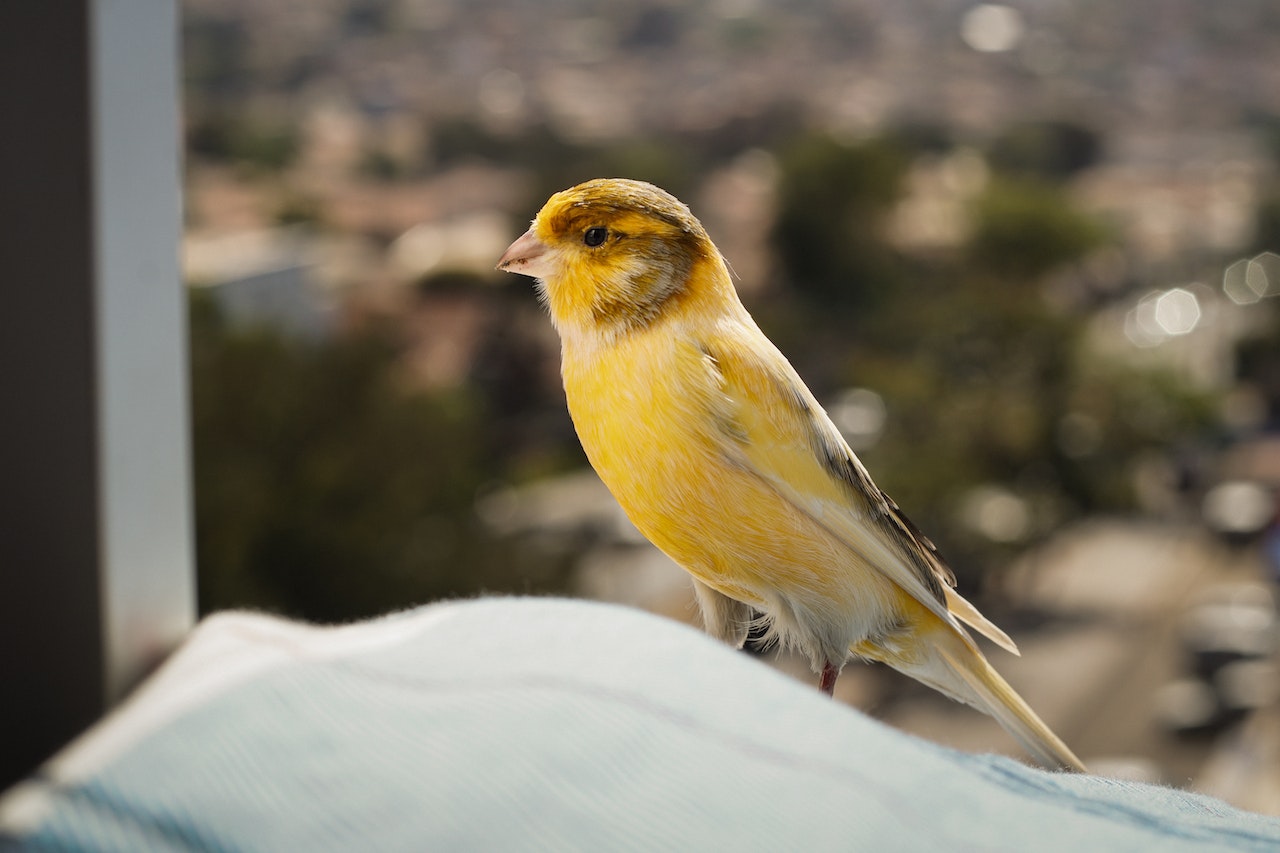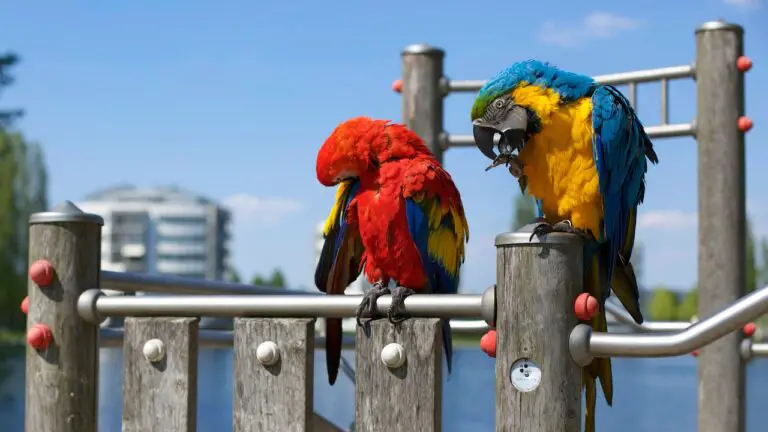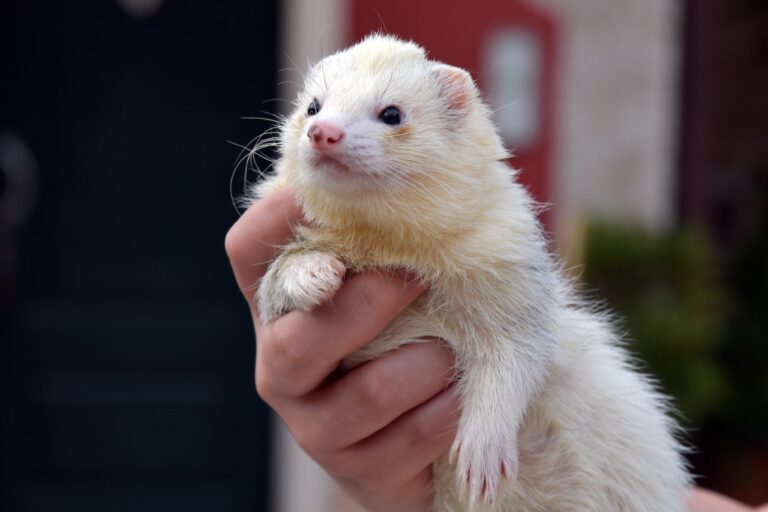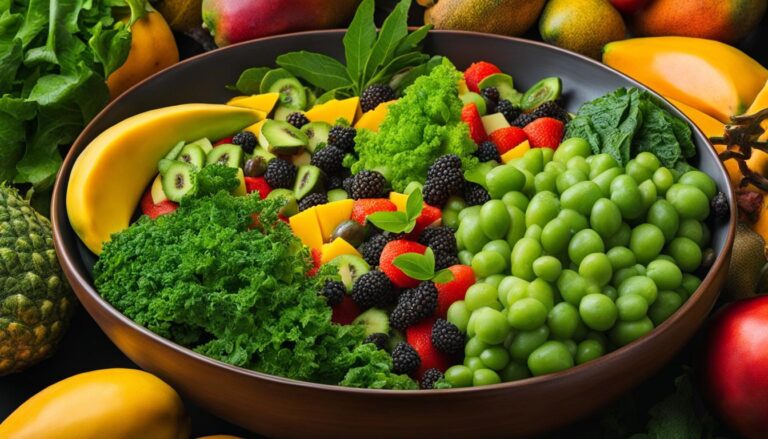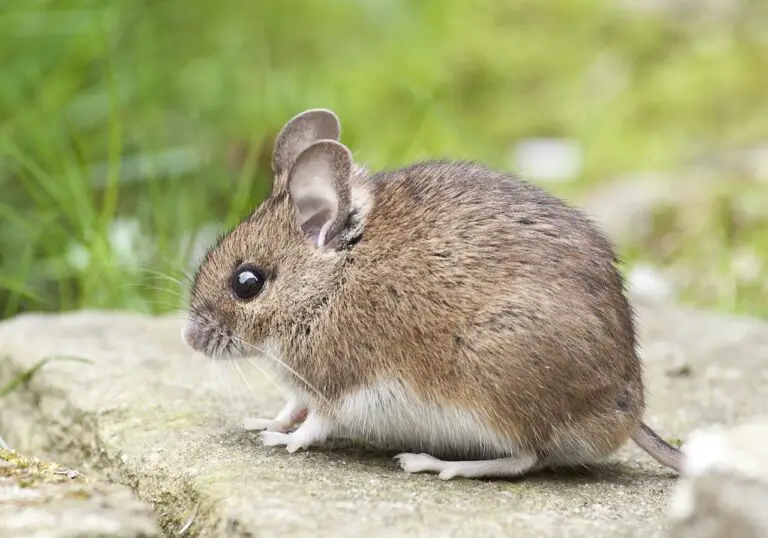Essential Dietary Needs for Healthy Exotic Birds: A Complete Guide
Exotic birds are unique creatures that require a specialized diet to maintain their health. A nutritious diet that is well-balanced and fits their individual needs is essential for their overall well-being.
Understanding the dietary needs of exotic birds is crucial for pet owners to ensure their birds live long, healthy lives.
A balanced diet for exotic birds should include six major categories of nutrients: water, proteins, carbohydrates, lipids, minerals, and vitamins. Each of these nutrients plays a critical role in maintaining the bird’s health.
However, the exact nutritional requirements for most species of birds are still unknown.
Therefore, it is essential to consult with a veterinarian or an avian nutritionist to ensure that the bird’s diet meets its specific needs.
Key Takeaways:
- A wholesome diet that is balanced and meets their particular demands is essential for their overall well-being.
- The six major categories of nutrients that should be included in their diet are water, proteins, carbohydrates, lipids, minerals, and vitamins.
- Consulting with a veterinarian or an avian nutritionist is crucial to ensure that the bird’s diet meets its specific needs.
Understanding Exotic Birds
Exotic birds are fascinating creatures that come in a wide variety of shapes, sizes, and colors.
They are often kept as pets and require special care to ensure they remain healthy and happy. Understanding the dietary needs of exotic birds is crucial for their wellbeing.
Unlike most other animals, birds have a unique digestive system that requires a diet rich in nutrients to support their high metabolic rate.
The precise dietary needs of the majority of bird species are yet unclear, but it is known that they require a balanced diet that includes the six classes of nutrients: water, carbohydrates, fats, proteins, vitamins, and minerals.
- Water is the most important nutrient for birds, and they require it in large quantities to maintain their health.
Without replacement of the water which is lost, death will result. Birds also require carbohydrates for energy, fats for insulation and energy storage, and proteins for growth and repair of tissues.
- Vitamins and minerals are also essential for maintaining the health of exotic birds.
Some vitamins, such as vitamin A, are critical for maintaining vision, while others, such as vitamin D, are necessary for calcium absorption. Minerals, such as calcium and phosphorus, are essential for strong bones and healthy egg production.
Importance of Balanced Diet
Exotic birds require a balanced diet to maintain optimal health and prevent the onset of chronic diseases. A balanced diet is one that provides all the necessary nutrients in the right proportions.
A diet that is lacking in essential nutrients can lead to malnutrition, which can cause a range of health problems, including weakened immune system, poor feather quality, and reduced lifespan.
- A balanced diet for exotic birds should include a variety of foods, including fruits, vegetables, seeds, and pellets.
Each of these food groups provides different nutrients that are essential for the bird’s health. For example, fruits and vegetables are rich in vitamins and minerals, while seeds and pellets provide protein and healthy fats.
It is important to note that not all fruits and vegetables are safe for birds to eat. Some fruits and vegetables, such as avocado, rhubarb, and onion, are toxic to birds and can cause serious health problems.
Therefore, it is essential to research which foods are safe for the specific species of bird being cared for.
In addition to providing a balanced diet, it is also vital to ensure that the bird has access to clean, fresh water at all times. Water is essential for digestion, hydration, and overall health.
Overall, a balanced diet is crucial for the health and wellbeing of exotic birds. Providing a variety of foods in the right proportions can help prevent malnutrition and promote optimal health.
Essential Nutrients
To maintain a healthy lifestyle, exotic birds require a balanced diet that provides them with all the necessary nutrients.
Essential nutrients are substances that the bird’s body cannot produce on its own, so they must be obtained from their diet.
These essential nutrients are categorized into five main groups: proteins, vitamins, minerals, fats, and carbohydrates.
1. Proteins
Proteins are the building blocks of life and are essential for the growth and repair of cells in a bird’s body.
Birds require a diet that is high in protein, as they have a high metabolic rate.
Protein-rich foods include eggs, dairy products, meat, and fish. Birds that are on a vegetarian diet can obtain protein from sources such as legumes, nuts, and seeds.
2. Vitamins
Vitamins are organic compounds that the bird’s body requires in small amounts to maintain good health.
Vitamins play a vital role in the bird’s metabolism, growth, and development. Birds require a diet that is rich in vitamins A, D, E, and K, as well as B-complex vitamins.
Vitamin A is essential for good vision, while vitamin D is necessary for the absorption of calcium. Vitamin E is an antioxidant that helps to protect the bird’s cells from damage, while vitamin K is required for blood clotting.
Good sources of vitamins include fruits, vegetables, and fortified cereals.
3. Minerals
Minerals are inorganic compounds that the bird’s body requires in small amounts to maintain good health. Minerals play a vital role in the bird’s metabolism, growth, and development.
Birds require a diet that is rich in minerals such as calcium, phosphorus, iron, and zinc.
Calcium is essential for strong bones and eggshell formation, while phosphorus is required for energy metabolism.
Iron is necessary for the production of hemoglobin, which carries oxygen in the blood, while zinc is required for the immune system to function properly. Good sources of minerals include leafy green vegetables, seeds, and nuts.
4. Fats
Fats are an essential component of a bird’s diet as they provide energy, insulation, and protection for the body’s organs.
Birds require a diet that is high in unsaturated fats, such as omega-3 and omega-6 fatty acids.
Good sources of fats include fish, nuts, and seeds.
5. Carbohydrates
Carbohydrates are a source of energy for the bird’s body.
Birds require a diet that is high in complex carbohydrates, such as whole grains, fruits, and vegetables.
Simple carbohydrates, such as sugar, should be avoided as they can lead to obesity and other health problems.
In summary, exotic birds require a balanced diet that provides them with all the essential nutrients, including proteins, vitamins, minerals, fats, and carbohydrates.
A diet that is rich in a variety of fruits, vegetables, seeds, nuts, and grains will help to ensure that the bird is receiving all the necessary nutrients to maintain good health.
Specific Dietary Needs
Exotic birds have specific dietary needs that must be met to ensure they remain healthy and happy.
The exact nutritional requirements for most species of birds are still unknown, but research has shown that different species have different dietary needs.
In this section, we will discuss the specific dietary needs of parrots, canaries, finches, and cockatiels.
1. Parrots
Parrots are omnivores and require a balanced diet that includes a mix of fruits, vegetables, grains, and protein.
A diet that is high in fat and low in nutrients can lead to health problems such as obesity and malnutrition.
It is important to provide your parrot with a variety of foods to ensure they are getting all the nutrients they need.
Some foods that are good for parrots include:
- Fruits: Apples, bananas, grapes, and melons
- Vegetables: Carrots, broccoli, sweet potatoes, and leafy greens
- Grains: Cooked brown rice, whole wheat bread, and pasta
- Protein: Cooked chicken, eggs, and beans
2. Canaries
Canaries are seed-eating birds and require a diet that is high in fat and low in fiber.
A diet that is too low in fat can lead to health problems such as fatty liver disease.
It is crucial to provide your canary with a variety of seeds to ensure they are getting all the nutrients they need.
Some seeds that are good for canaries include:
- Canary seed
- Millet
- Hemp seed
- Flax seed
3. Finches
Finches are also seed-eating birds and require a diet that is high in fat and low in fiber.
A diet that is too low in fat can lead to health problems such as fatty liver disease.
It is essential to provide your finch with a variety of seeds to ensure they are getting all the nutrients they need.
Some seeds that are good for finches include:
- Nyjer seed
- Canary seed
- Millet
- Hemp seed
4. Cockatiels
Cockatiels are omnivores and require a balanced diet that includes a mix of fruits, vegetables, grains, and protein.
A diet that is high in fat and low in nutrients can lead to health problems such as obesity and malnutrition.
It is important to provide your cockatiel with a variety of foods to ensure they are getting all the nutrients they need.
Some foods that are good for cockatiels include:
- Fruits: Apples, bananas, grapes, and melons
- Vegetables: Carrots, broccoli, sweet potatoes, and leafy greens
- Grains: Cooked brown rice, whole wheat bread, and pasta
- Protein: Cooked chicken, eggs, and beans
In conclusion, it is important to provide your exotic bird with a balanced diet that meets their specific dietary needs.
By providing your bird with a variety of foods, you can help ensure they remain healthy and happy.
Common Dietary Issues
Exotic birds require a balanced diet to thrive. However, many owners may not be aware of the common dietary issues that can arise if their birds are not fed properly.
Here are some of the most common dietary issues that exotic birds may experience:
1. Obesity
Obesity is a common issue among pet birds, especially those that are fed a diet that is high in fat.
This can lead to serious health problems, including liver disease, heart disease, and diabetes.
To prevent obesity, it is essential to feed birds a balanced diet that is low in fat and high in nutrients.
2. Malnutrition
Malnutrition is another common issue that exotic birds may face.
This can occur if birds are not provided with a diet that meets their specific nutritional needs. Birds that are fed a diet that is too low in protein, vitamins, or minerals may experience malnutrition.
This can lead to a range of health problems, including weakened immune systems, stunted growth, and poor feather quality.
3. Vitamin Deficiencies
Exotic birds may also experience vitamin deficiencies if they are not provided with a diet that is rich in vitamins.
Vitamin deficiencies can lead to a range of health problems, including poor feather quality, weakened immune systems, and stunted growth.
It is essential to provide birds with a diet that is rich in vitamins, including vitamin A, vitamin D, and vitamin E.
4. Mineral Deficiencies
Mineral deficiencies can also be a common issue among exotic birds.
Birds that are not provided with a diet that is rich in minerals may experience health problems, including weakened bones, poor feather quality, and stunted growth.
It is essential to provide birds with a diet that is rich in minerals, including calcium, phosphorus, and iron.
In conclusion, exotic birds require a balanced diet that is rich in nutrients to thrive.
Owners should be aware of the common dietary issues that can arise if their birds are not fed properly.
By providing birds with a balanced diet that meets their specific nutritional needs, owners can help ensure that their birds remain healthy and happy.
Preventing Nutritional Deficiencies
Exotic birds have specific dietary needs that must be met to prevent nutritional deficiencies.
These deficiencies can lead to serious health problems and even death. It is essential to provide a balanced and varied diet to ensure that the bird receives all the necessary nutrients.
- One of the most common nutritional deficiencies in exotic birds is a lack of vitamin A.
This can be caused by an all-seed diet or a diet that is deficient in fresh fruits and vegetables.
Clinical signs of vitamin A deficiency include nasal discharge, sneezing, periorbital swelling, conjunctivitis, dyspnea, poor feather quality, feather picking, and anorexia. To prevent vitamin A deficiency, it is important to provide a diet that is high in beta-carotene, which is converted to vitamin A in the body. Foods such as sweet potatoes, carrots, and dark leafy greens are excellent sources of beta-carotene.
- Another common nutritional deficiency in exotic birds is a lack of calcium.
Calcium is essential for bone health, egg production, and muscle function.
Clinical signs of calcium deficiency include soft-shelled eggs, egg binding, seizures, and weakness. To prevent calcium deficiency, it is important to provide a diet that is high in calcium. Foods such as kale, broccoli, and almonds are excellent sources of calcium.
- Exotic birds also require a diet that is high in protein.
Protein is essential for growth, repair, and maintenance of body tissues.
Clinical signs of protein deficiency include poor feather quality, delayed wound healing, and stunted growth. To prevent protein deficiency, it is important to provide a diet that is high in protein. Foods such as cooked chicken, hard-boiled eggs, and legumes are excellent sources of protein.
In addition to providing a balanced and varied diet, it is important to ensure that the bird is receiving adequate amounts of water. Dehydration can lead to serious health problems, including kidney failure. It is recommended to provide fresh, clean water at all times and to change the water at least once a day.
Conclusion
In conclusion, providing a balanced and nutritious diet is crucial for maintaining the health and well-being of exotic birds. A diet that is lacking in essential nutrients can lead to a variety of health problems and decrease the lifespan of the bird.
Exotic birds have specific dietary needs that vary depending on the species, age, and activity level. It is important to do research and consult with a veterinarian or avian nutritionist to determine the specific dietary requirements for your bird.
In general, a balanced diet for exotic birds should include a variety of fresh fruits and vegetables, high-quality pellets, and a source of protein. It is also important to ensure that the bird has access to clean water at all times.
Some common mistakes that bird owners make when it comes to feeding their birds include feeding them a diet that is too high in fat, offering too many treats, and not providing enough variety in their diet. These mistakes can lead to obesity, malnutrition, and a weakened immune system.
By following the guidelines outlined in this article and seeking professional advice when necessary, bird owners can ensure that their feathered friends are receiving the essential nutrients they need to thrive.
Frequently Asked Questions
What are the nutritional requirements for exotic birds?
Exotic birds have different nutritional requirements than other animals. They require a diet that is rich in vitamins, minerals, and other nutrients. A balanced diet should include carbohydrates, fats, and proteins. It is important to note that the nutritional requirements for different species of exotic birds may vary.
What should be included in a healthy bird diet?
A healthy bird diet should include a variety of foods that provide essential nutrients. This can include a mix of fresh fruits, vegetables, and high-quality commercial bird food. It is important to ensure that the bird’s diet is balanced and contains all the necessary nutrients.
How much protein should be in a bird’s diet?
The amount of protein required in a bird’s diet will depend on the species of bird. Generally, birds require a diet that is high in protein. However, it is important to ensure that the protein source is of high quality and easily digestible.
What are the best foods for exotic birds?
The best foods for exotic birds are those that provide a variety of essential nutrients. Fresh fruits and vegetables are a great source of vitamins and minerals. High-quality commercial bird food can also be a good source of nutrients. It is important to avoid feeding birds foods that are high in fat or sugar.
What should be avoided in a bird’s diet?
Birds should not be fed foods that are high in fat or sugar. They should also not be fed foods that are toxic to them, such as avocado, chocolate, caffeine, and alcohol. It is important to research the specific dietary needs of the bird’s species to ensure that they are not being fed anything harmful.
What is the recommended daily intake of food for exotic birds?
The recommended daily intake of food for exotic birds will vary depending on the species of bird. Generally, birds should be fed twice a day and should have access to fresh water at all times. It is important to monitor the bird’s weight and adjust their diet accordingly to ensure that they are maintaining a healthy weight.
Peter Stones is the founder of Exotic Pets Place, the leading online resource for exotic pet care information.
With over 10 years of hands-on exotic pet ownership experience, he is deeply passionate about sharing his expertise to help others properly care for their unusual pets.
When he's not writing extensively researched articles or connecting with fellow exotic pet enthusiasts worldwide, you can find Peter at home tending to his own beloved menagerie of exotic animals.

